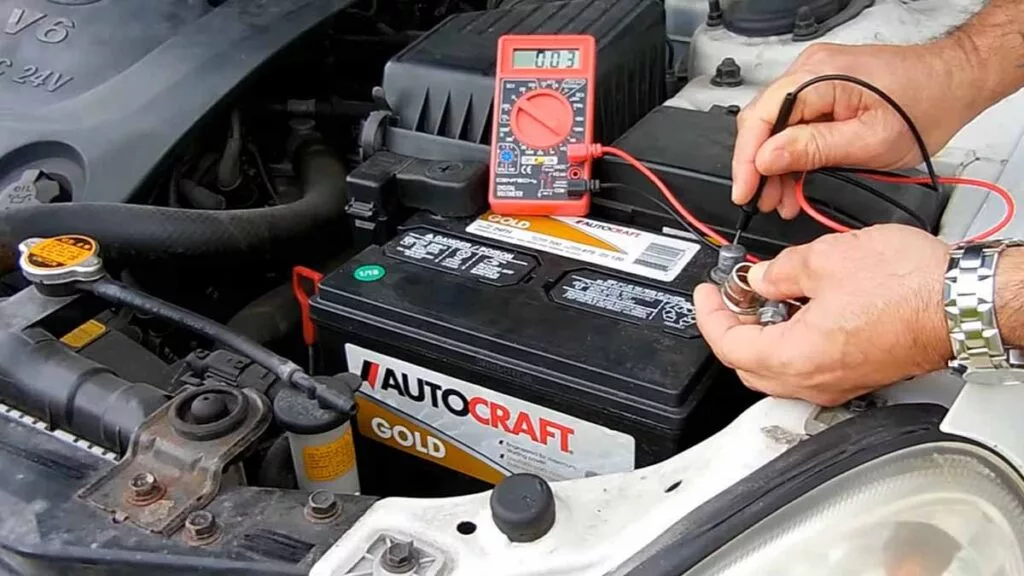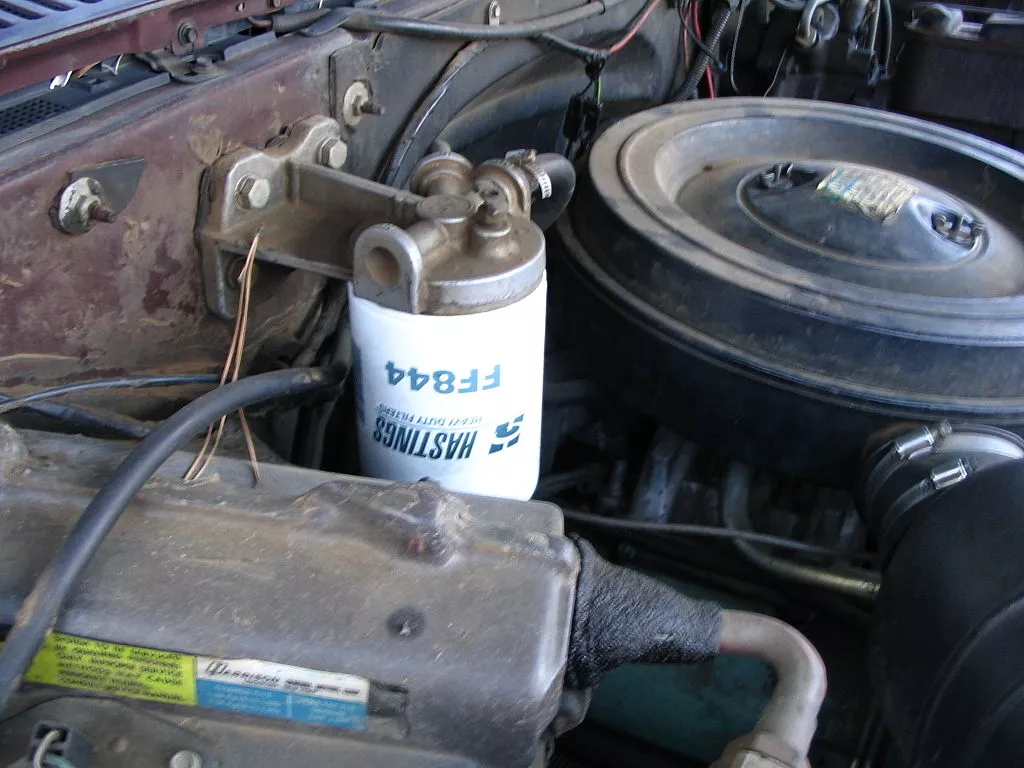When your car won’t start one click then nothing; the first thing you need to check for the battery. When the battery is dead when the starter is failed, or the battery cables are corroded and loose, you will usually experience this problem.
But there is another thing, when the cause for the problem is different, the sound related to the clicking sound varies. So when you have better reading and a knowledge of those sounds, then it will be very easy for you to find out the origin of those problems.
This article is dedicated to giving you perfect knowledge about the problems causing the clicking sounds in your vehicles.
What are the different types of clicking sounds you may hear?
Rapid Clicking vs. One Single Click
A click usually indicates an electrical problem. The trouble is that a variety of components could cause your engine’s electrical fault.
Car owners frequently distinguish between two types of clicks: a single click with no engine turnover and fast clicking.
While there is no straightforward “diagnose from the noise alone” situation, the difference between fast and slow clicking can provide us some insight into the problem and its severity.
A series of rapid clicks are heard from the car.
The good news is that this could be a straightforward issue to resolve. A quick clicking noise is usually an indication that your starter motor isn’t getting enough electrical current to engage – in other words, your solenoid is attempting to engage but failing to connect.
A deteriorating battery, a poor connection at the battery, or even a malfunctioning alternator that isn’t correctly recharging your battery could all be to blame for the lack of electrical current. In the best-case scenario, your batteries or posts are dirty.
Does it produce a single loud click when your car tries to start?
Some mechanics would immediately assume your starter engine is the noise source, especially if you hear one click.
However, it’s still possible that the problem is caused by a filthy, corroded, or exhausted battery. This could be indicated by a sequence of slow clicks (as shown below).
Even if some of your vehicle’s other battery features appeared to be charged, this could be the case.
Most vehicles require at least 12 volts to start, but your radio and interior lighting may get by with much less.
The car won’t start just clicks when I turn the key; Why?
As I’ve mentioned at the beginning, the cause for the clicking sound cannot be diagnosed once the sound is heard. But once you have heard it, then just lookout for the following.
The battery is dead.
The most typical reason for a clicking noise when trying to start your car is a dead battery. A quick succession of clicks is usually heard.

The noise indicates that the starter solenoid or relay is working but that the battery current is insufficient to turn the beginning motor.
If the battery is sufficiently exhausted, there may not be enough electrical energy to open and close the solenoid or relay several times. You’ll probably only hear one or two clicks or nothing at all when this happens.
A starter that isn’t working.
A malfunctioning starter might cause a clicking sound when you try to start your car, albeit it isn’t as prevalent. Rather than chattering, you’ll usually hear only a single click. The sound indicates that the starter solenoid is attempting (unsuccessfully) to activate the starter.
The battery is dead.
The most typical reason for a clicking noise when trying to start your car is a dead battery. A quick succession of clicks is usually heard.
The noise indicates that the starter solenoid or relay is working but that the battery current is insufficient to turn the beginning motor.
If the battery is sufficiently exhausted, there may not be enough electrical energy to open and close the solenoid or relay several times. You’ll probably only hear one or two clicks or nothing at all when this happens.
Battery terminals or cables that are loose or corroded.
Excessive electrical resistance in the starting circuit might be caused by loose or corroded battery terminals or cables. As a result, the starter solenoid or relay may turn on, but not enough electricity will be available to spin the starter.
Automobile battery that has rusted
Excessive electrical resistance in the starting circuit might be caused by loose or corroded battery terminals or cables.
There is an issue with the engine.
Many people overlook the fact that a mechanical issue with an engine can also prevent a vehicle from starting. The starter motor solenoid or relay will close if the engine is seized, resulting in an audible click. However, the starter will be unable to turn the engine over to start the car since it is locked up.
The Starter Solenoid Is Faulty.
You may hear the starter relay click if the solenoid is not operating, but the solenoid will not engage the starter to crank the engine.
Automobile battery that has rusted
Excessive electrical resistance in the starting circuit might be caused by loose or corroded battery terminals or cables.
There is an issue with the engine.
Many people overlook the fact that a mechanical issue with an engine can also prevent a vehicle from starting. The starter motor solenoid or relay will close if the engine is seized, resulting in an audible click. However, the starter will be unable to turn the engine over to start the car since it is locked up.
The Starter Solenoid Is Faulty.
You may hear the starter relay click if the solenoid is not operating, but the solenoid will not engage the starter to crank the engine.
The car won’t start, but no clicking noise; why?
There are a few options if you feel the problem is fuel-related. Due to the cold weather, your fuel line may have frozen and will need to be thawed. The following are two more common options:
The gas tank is completely depleted.
This could be the problem even if your gas tank does not display that it is empty. You could run out of gas due to a mis calibrated fuel gauge.
The fuel filter must be replaced.
Check your owner’s manual to see how often or how long ago you should have changed your fuel filter. Gas will not be able to reach the engine if the fuel filter is clogged.
If you routinely drive your automobile to the point of exhaustion, your fuel filter may begin to show signs of wear.

There isn’t any spark.
You may not be getting a spark if your automobile cranks but does not start. The fuel is ignited by a spark, which allows the car to start.
Although it is possible to check for a spark oneself, this is likely above the normal driver’s skill level and should be left to a mechanic.
Some related FAQs about Car Won’t Start One Click Then Nothing.
Clicking sound when starting car cold; why?
During a cold start, a buildup of carbon on the crown of the piston and the ceiling of the combustion chamber, resulting in physical contact and a relatively abrupt click, is to blame for this sound. As the engine warms up, both noises diminish.
Clicking noise when starting car but radio works; why?
A dead battery, a faulty connection to the battery, or even a defective alternator could be to blame for the lack of electrical current. Cleaning your battery or posts is the best-case scenario.
Car making clicking noise without the key; Why?
Maybe your battery is dead, or maybe your alternator, which charges the battery, isn’t working properly.
If an electrical problem causes the clicking, the starter (a little motor powered by the engine’s battery) does not have enough juice to stay powered.
We hope you’ve got the answer that you’ve needed for the question, “Car Won’t Start One Click Then Nothing” reading our explanation. If you have more questions just leave a comment below, and we are really straightforward to help you further. If you need review of the Trac Off Light, check this link for it. Thank you.
